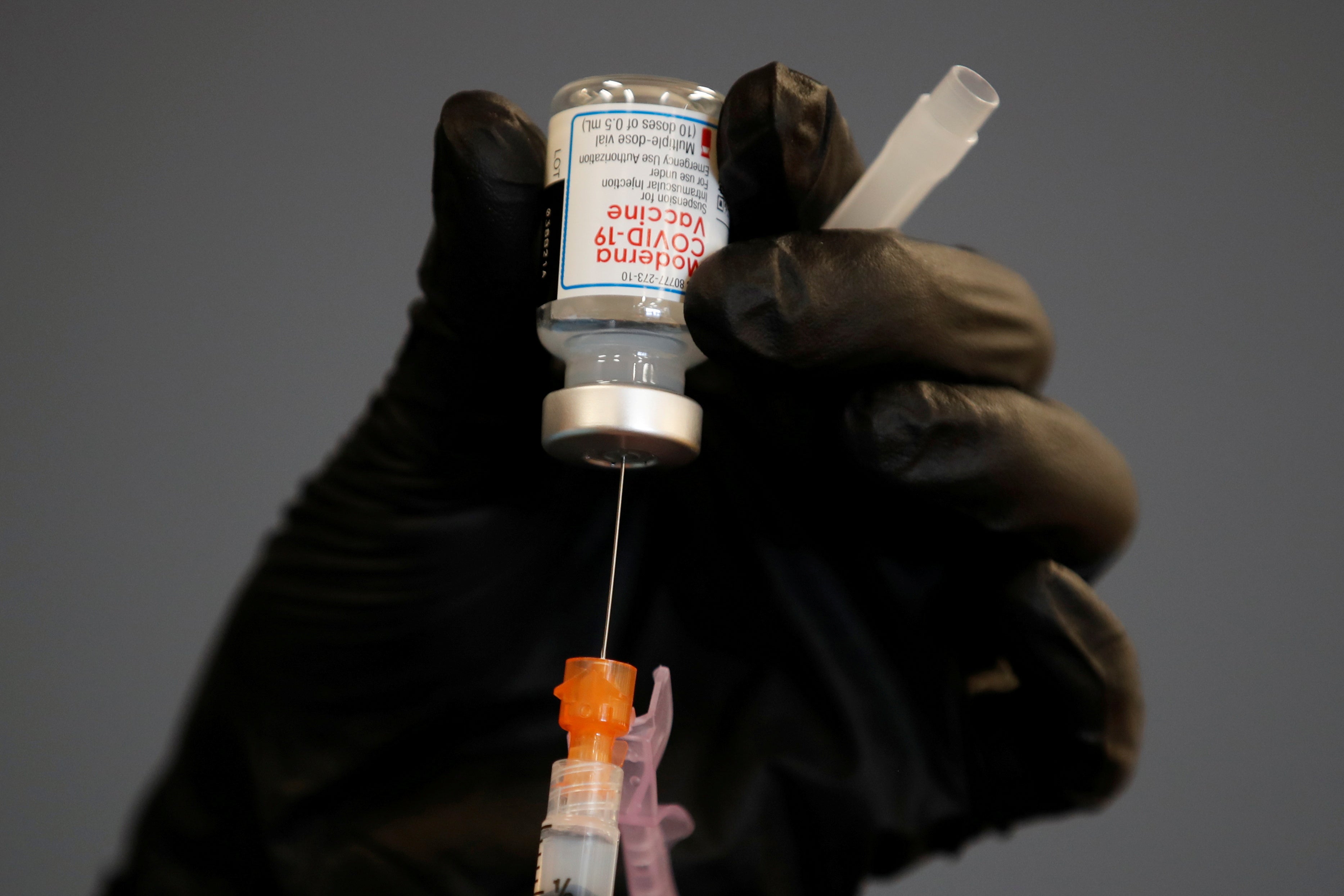Gaza and West Bank, Mexico and Canada among regions to receive 25 million Covid vaccine doses from Biden
19 million doses to be distributed to countries as part of WHO’s Covax

Your support helps us to tell the story
From reproductive rights to climate change to Big Tech, The Independent is on the ground when the story is developing. Whether it's investigating the financials of Elon Musk's pro-Trump PAC or producing our latest documentary, 'The A Word', which shines a light on the American women fighting for reproductive rights, we know how important it is to parse out the facts from the messaging.
At such a critical moment in US history, we need reporters on the ground. Your donation allows us to keep sending journalists to speak to both sides of the story.
The Independent is trusted by Americans across the entire political spectrum. And unlike many other quality news outlets, we choose not to lock Americans out of our reporting and analysis with paywalls. We believe quality journalism should be available to everyone, paid for by those who can afford it.
Your support makes all the difference.US officials have announced plans to distribute the first wave of 80 million Covid-19 vaccine doses in an effort to boost the global vaccine supply and combat more-contagious variants amid the coronavirus pandemic.
The doses will be allocated from the federal supply, not from those sent to states. The US will supply doses from the Johnson & Johnson, Moderna and Pfizer vaccines to Covax, the World Health Organization’s vaccination effort, and directly send another wave of vaccines to several other countries and regions.
Roughly 75 per cent of the first wave of 25 million doses to be distributed will be shared with Covax, according to the White House.
From those, 6 million doses will be targeted to South and Central American countries including Brazil, Argentina, Colombia, Costa Rica, Peru, Ecuador, Paraguay, Bolivia, Guatemala, El Salvador, Honduras and Panama, as well as Haiti and the Dominican Republic.
Another 7 million doses to Covax will head to Asia, including India, Nepal, Bangladesh, Pakistan, Sri Lanka, Afghanistan, Maldives, Malaysia, Philippines, Vietnam, Indonesia, Thailand, Laos, Papua New Guinea, Taiwan, and the Pacific Islands.
The Covax effort also will receive 5 million doses for Africa to be shared among countries selected by the African Union.
The US also will directly send 6 million doses to Mexico, Canada, and the Republic of Korea, West Bank and Gaza, Ukraine, Kosovo, Haiti, Georgia, Egypt, Jordan, Iraq and Yemen. Those doses are aimed at “countries experiencing surges, those in crisis, and other partners and neighbors,” President Joe Biden said in a statement on Thursday.
Vaccines from that tranche will also support United Nations frontline workers.
The distribution will lay the groundwork for “increased global coverage and to address real and potential surges, high burdens of disease, and the needs of the most vulnerable countries,” the president said.
National Security Adviser Jake Sullivan told reporters on Thursday that the US “will not use its vaccines to secure favors from other countries.”
The announcement of the first stage of the US distribution plan arrives before Mr Biden’s first overseas trip as president to attend the G7 summit in the UK and a NATO summit in Brussels.
More than 168 million people in the US have received at least one dose of the three available vaccines, according to the US Centers for Disease Control and Prevention.
Roughly 138 million are fully vaccinated, or have received two doses of the Moderna and Pfizer vaccines or the single-dose Johnson & Johnson vaccine, with more than half of the US adult population fully innoculated from the disease.
Daily vaccination rates have declined following a peak in April, as demand dips among some Americans and officials coordinate efforts to vaccinate harder-to-reach populations and combat hesitancy and mis- and disinformation about vaccines.
Join our commenting forum
Join thought-provoking conversations, follow other Independent readers and see their replies
Comments